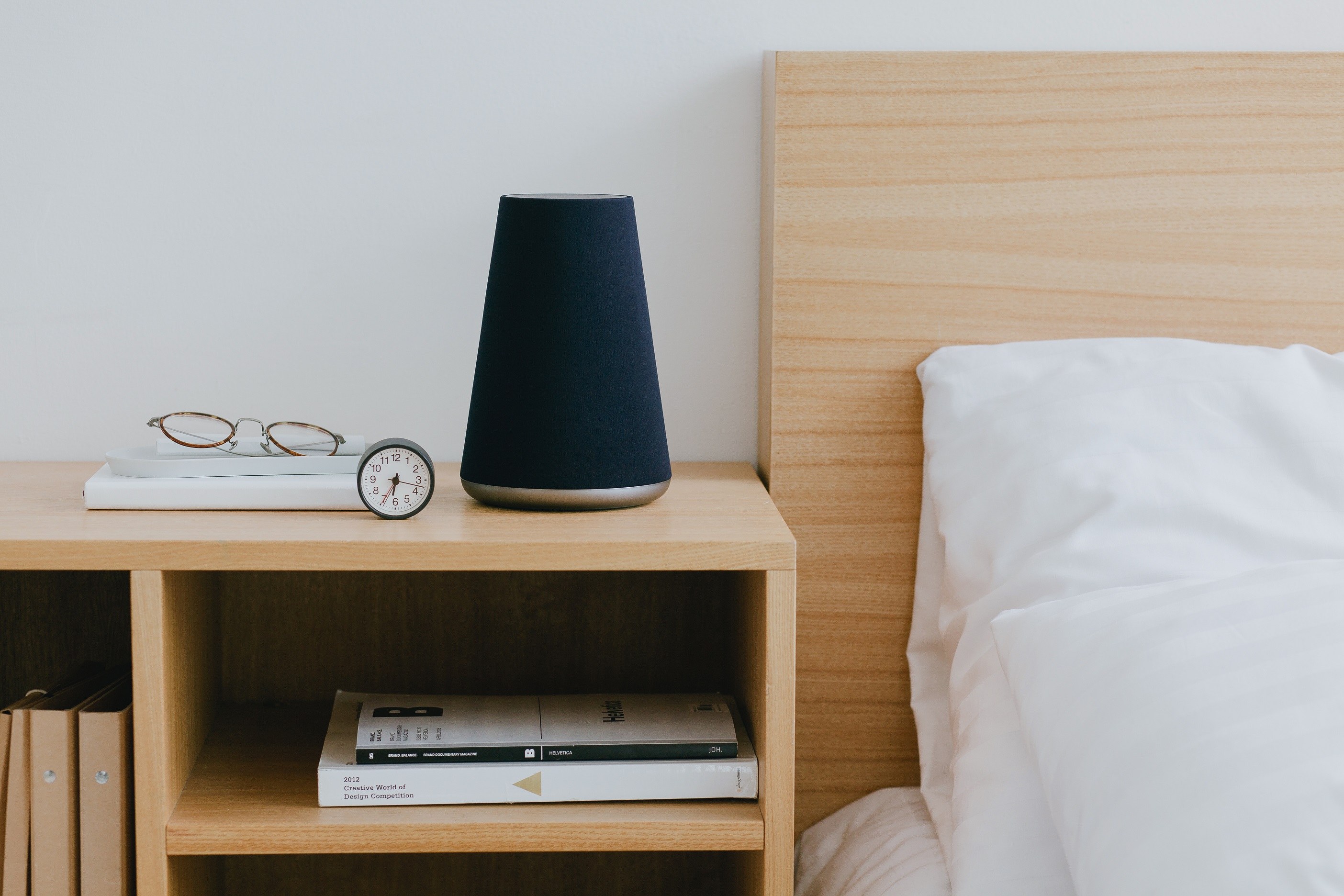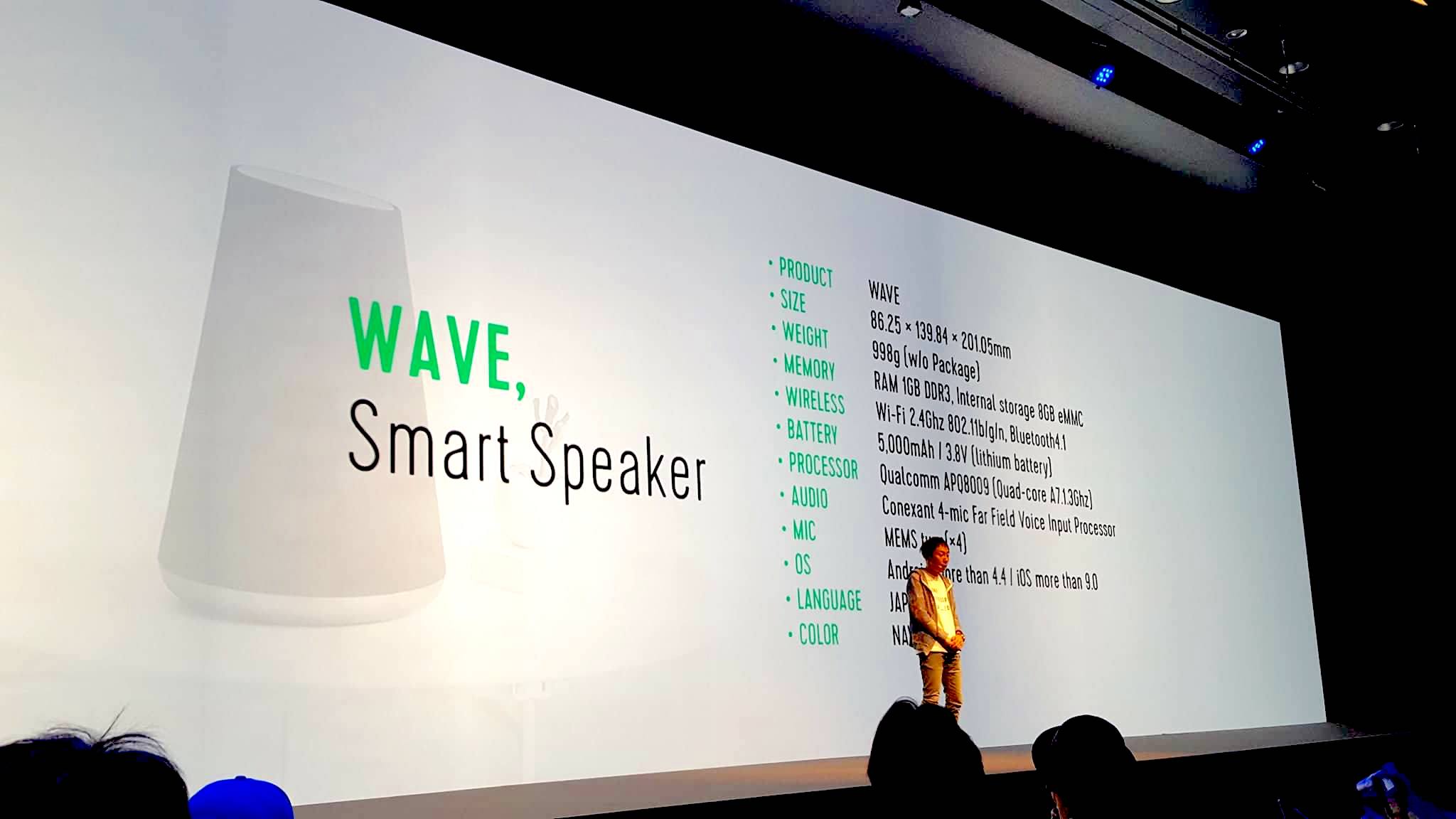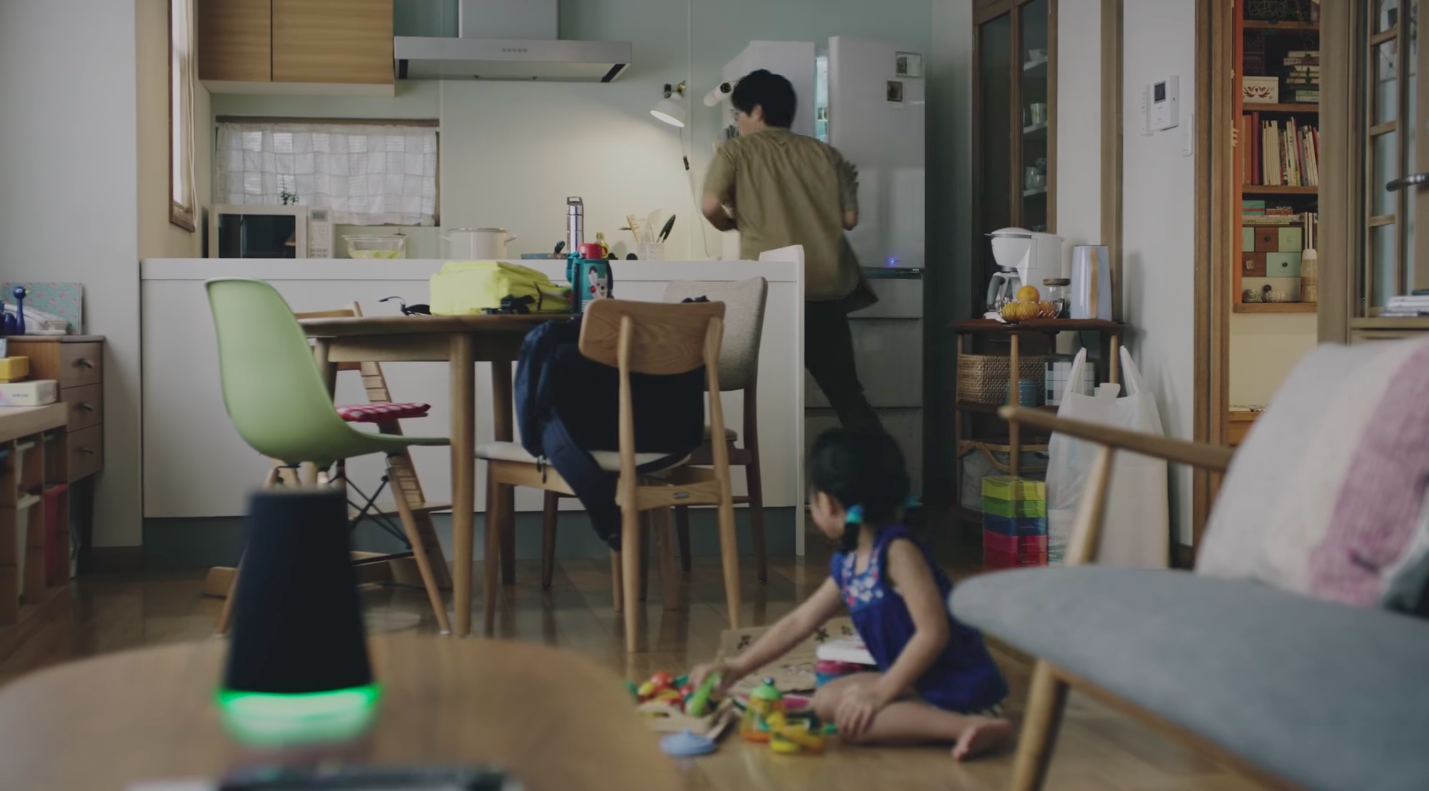
Video credit: Line.
A father and his young daughter are preparing to go to sleep. “Lights off,” he says to a glowing smart speaker, next to their bed.
The smart speaker is Line’s Wave – which hit the shelves on October 5.
“Lights on,” their daughter protests. Dad laughs.
“No, lights off.”
“Lights on!”
Later, Mom, who’s on the way home from work, sends a message to the smart speaker: “Slept yet?”
The daughter replies: “Clova, tell Mama that Papa is asleep.”
This is Line’s vision of its smart speaker, Clova Wave. It’s heartwarming, but the question remains: can Wave and its digital assistant, Clova challenge Alexa or Google Assistant?

Image credit: Line.
Line playing catch up
“Line is only six years old; other companies have more than fifteen years’ of experience,” Line CTO Park Euivin says through a translator at Line Developer Day 2017.
“But even if we have a late start, I don’t think there is any company that matches us in speed,” she says.
Within a year, Line had created Clova, which stands for “cloud-based virtual assistant.”
The accompanying hardware, Wave, opened for pre-orders in July this year. Line Developer Day 2017 marks the official release of the smart speaker.

Wave’s specs at Line Developer Day 2017. Photo credits: Tech In Asia.
Park says that Line has parent company Naver, which owns the dominant search engine in Korea. Like Google and its device, there’s potential for Wave to work with Naver’s search data.
Also, with key offices in Taiwan, Thailand, Indonesia, and Korea, Line is likely to have access to language specialists in these countries, whether in-house hires or external partners.
On top of that, Line reported a monthly active user count of 169 million across four key countries at Line Developer Day. The wealth of user data available means localization opportunities for the home speaker.
“I don’t think anyone has an advantage [in the smart home market],” says Park. “We have data about Asian users and we can leverage that.”
Line says they’re the first to launch a Japanese smart speaker powered by AI.
Apart from collaborations with big boys like Sony and LG, Line is also open to partnering any companies to make their users’ lives better. Their current partners range from convenience store Family Mart to holographic home robot manufacturer Gatebox.

Video credit: Line.
A long road
Line faces formidable foes in Google and Amazon. Google has several ways to get user data and lock users in. Google Chrome is the dominant web browser. Gmail has more than one billion monthly active users. Over 85 percent of the world’s web searches came from Google in July 2017.
When asked about collaboration with Google specifically, Taiichi Hashimoto, who oversees the Clova project, says Line wouldn’t rule out the possibility.
Google Home shipments are expected to reach several million units in 2017. Meanwhile, Amazon Echo has surpassed them – shipments are expected to reach over 10 million units in 2017.
It’ll be an uphill battle for Line, whose team apologized for shipment delays of the trial version of Wave released in August.
But Line’s main goal for Clova and Wave in 2017 is not user acquisition. Wave appears to be just a side dish to complement Clova: Line is focused on creating API openings, growing the Clova developer ecosystem, and involving as many engineers as possible in Clova.
At the moment, Wave can play music, tell the weather, time, and your fortune, act as a remote control, read and send Line messages, and chat with users. But with in-house, third-party developers, and partners, Line plans to increase Wave’s features and fine-tune the smart speaker.
“Hopefully, we can create many different applications and we will grow from there,” Hashimoto says.
This post Line prepares to challenge Amazon’s Alexa and Google Home appeared first on Tech in Asia.
from Tech in Asia https://www.techinasia.com/line-prepares-challenge-amazons-alexa-google-home
via IFTTT
No comments:
Post a Comment